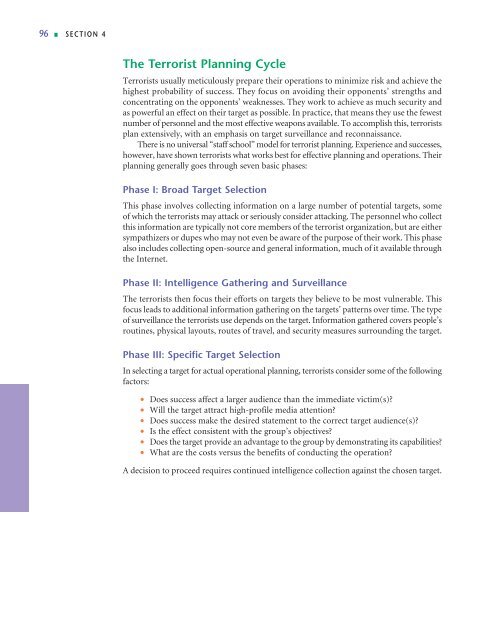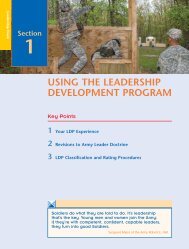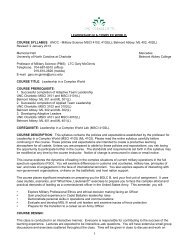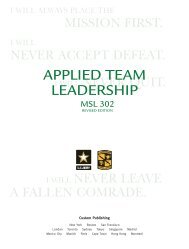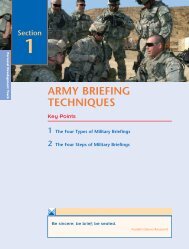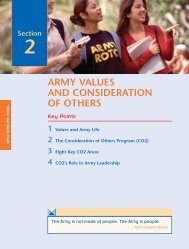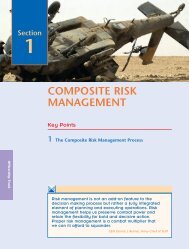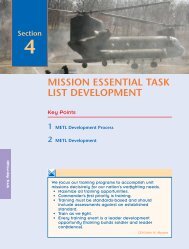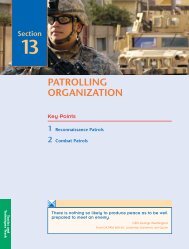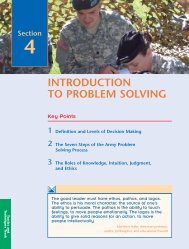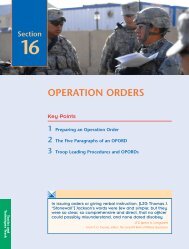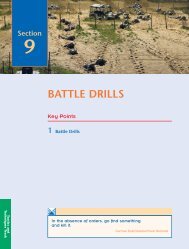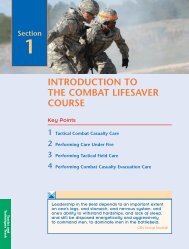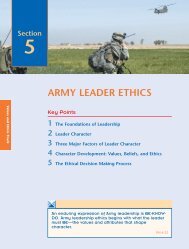CULTURE OF TERRORISM - UNC Charlotte Army ROTC
CULTURE OF TERRORISM - UNC Charlotte Army ROTC
CULTURE OF TERRORISM - UNC Charlotte Army ROTC
Create successful ePaper yourself
Turn your PDF publications into a flip-book with our unique Google optimized e-Paper software.
96 n SECTION 4The Terrorist Planning CycleTerrorists usually meticulously prepare their operations to minimize risk and achieve thehighest probability of success. They focus on avoiding their opponents’ strengths andconcentrating on the opponents’ weaknesses. They work to achieve as much security andas powerful an effect on their target as possible. In practice, that means they use the fewestnumber of personnel and the most effective weapons available. To accomplish this, terroristsplan extensively, with an emphasis on target surveillance and reconnaissance.There is no universal “staff school” model for terrorist planning. Experience and successes,however, have shown terrorists what works best for effective planning and operations. Theirplanning generally goes through seven basic phases:Phase I: Broad Target SelectionThis phase involves collecting information on a large number of potential targets, someof which the terrorists may attack or seriously consider attacking. The personnel who collectthis information are typically not core members of the terrorist organization, but are eithersympathizers or dupes who may not even be aware of the purpose of their work. This phasealso includes collecting open-source and general information, much of it available throughthe Internet.Phase II: Intelligence Gathering and SurveillanceThe terrorists then focus their efforts on targets they believe to be most vulnerable. Thisfocus leads to additional information gathering on the targets’ patterns over time. The typeof surveillance the terrorists use depends on the target. Information gathered covers people’sroutines, physical layouts, routes of travel, and security measures surrounding the target.Phase III: Specific Target SelectionIn selecting a target for actual operational planning, terrorists consider some of the followingfactors:• Does success affect a larger audience than the immediate victim(s)?• Will the target attract high-profile media attention?• Does success make the desired statement to the correct target audience(s)?• Is the effect consistent with the group’s objectives?• Does the target provide an advantage to the group by demonstrating its capabilities?• What are the costs versus the benefits of conducting the operation?A decision to proceed requires continued intelligence collection against the chosen target.


